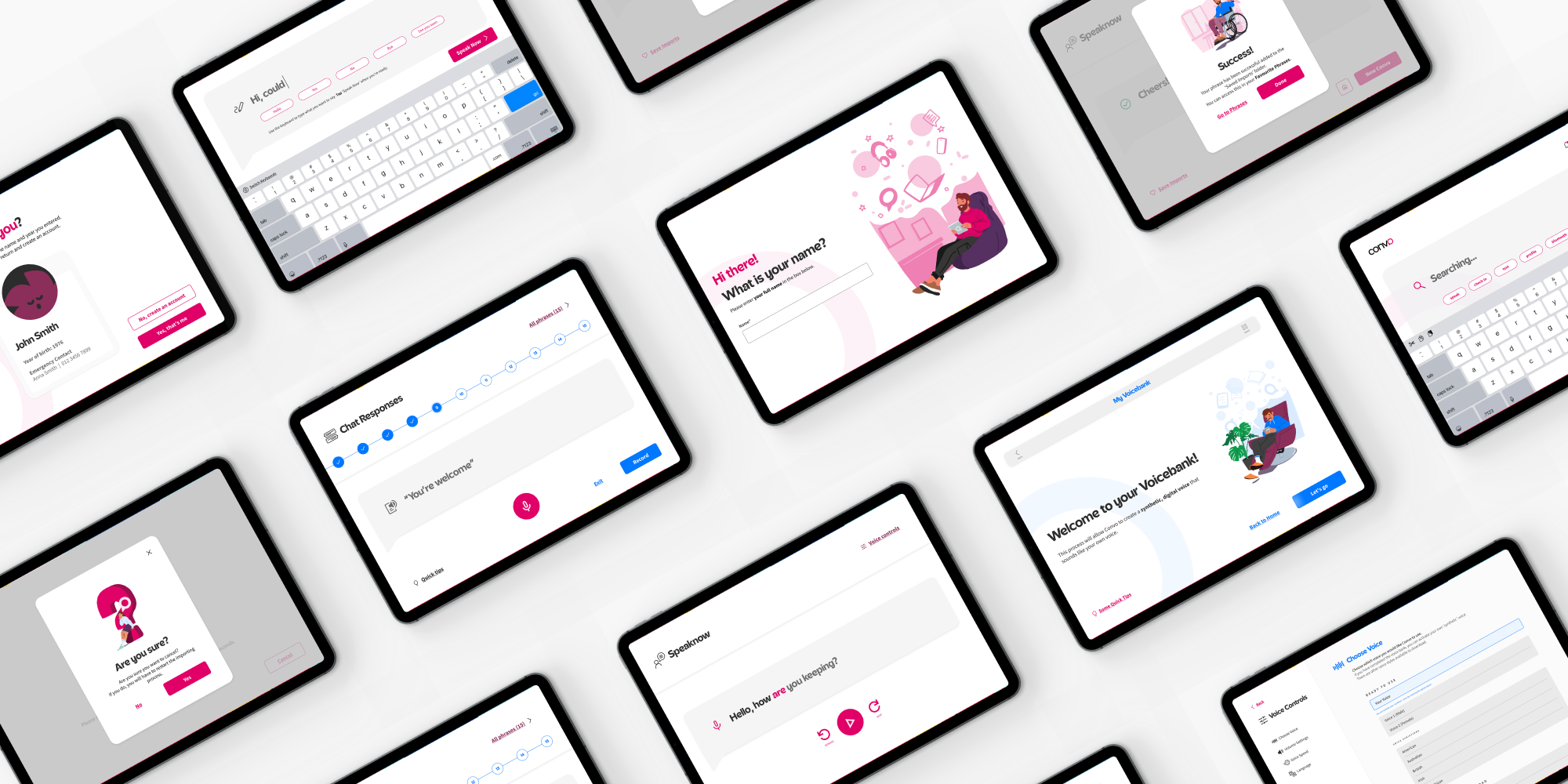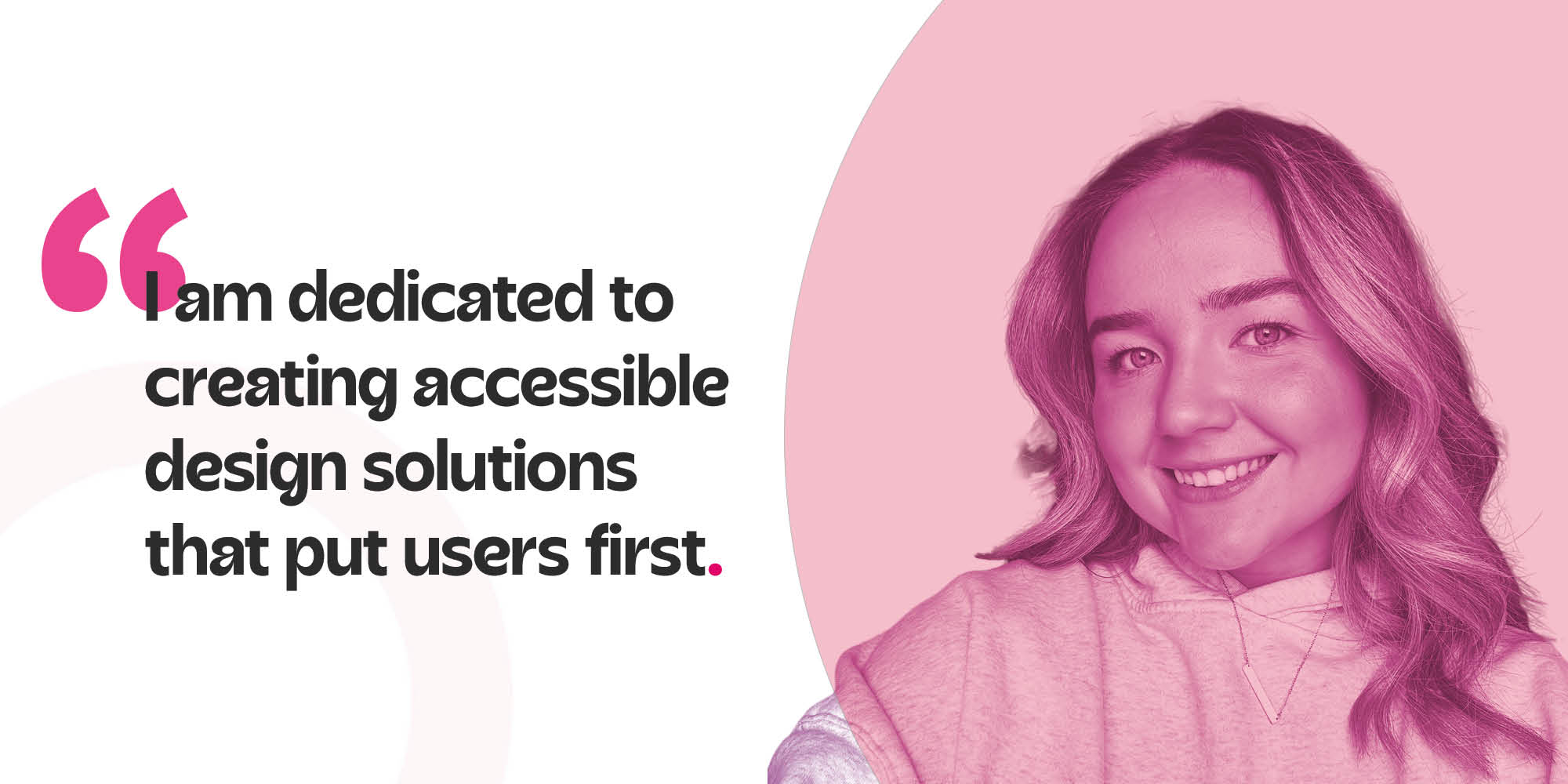

Hi, I’m Ciara Fraser, a UX designer based in County Antrim, Northern Ireland. I use my passion for design to make positive impacts on people’s lives through inclusive and accessible UX design. While studying Foundation Art & Design, I found my passion for solving problems through user-centred design. This grew and developed during my time studying Interaction Design at Ulster University.
Outside of design, you will most likely find me on a rugby pitch, out with my dogs or starting a new book!
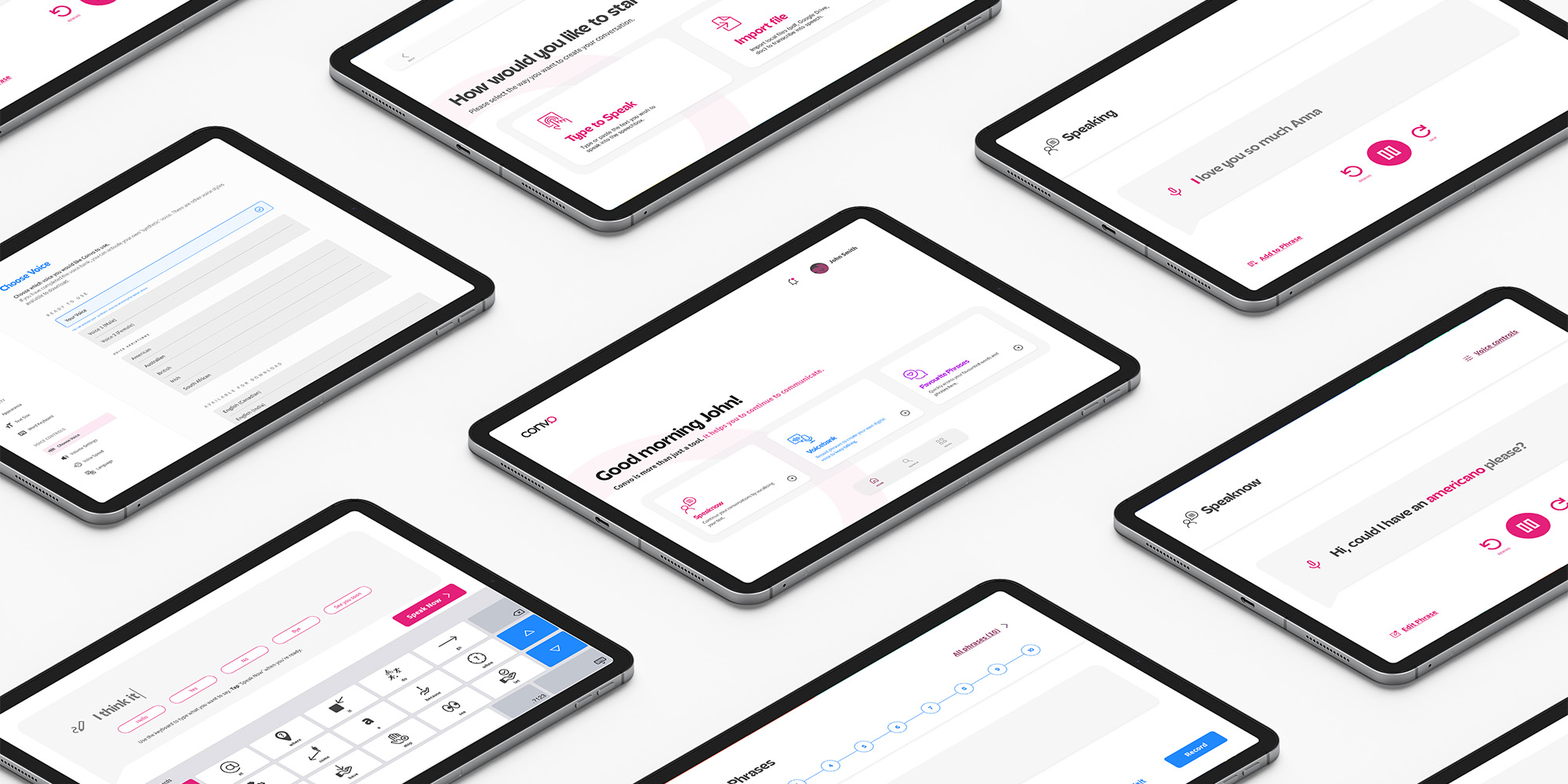
Motor Neurone Disease (MND) is a terminal, progressive condition that destroys motor neurones, leading to muscle wasting, which affects a person’s ability to walk, swallow, breathe and speak. It can affect anyone, though it’s more common in men aged 30–70. Progressively losing your ability to speak and use your voice is detrimental, not just for communication, but also in terms of a person’s connection with others and themselves.
Convo was inspired by a personal experience. My uncle Neil was diagnosed with MND at 32, and my nanny Margaret became his primary carer. I witnessed firsthand how losing his voice affected him and our family. The communication barrier created by MND was one of the biggest challenges they faced. So, during the ideation process I considered if there was anything I could create that could have helped them, but also help others who are facing a similar situation.
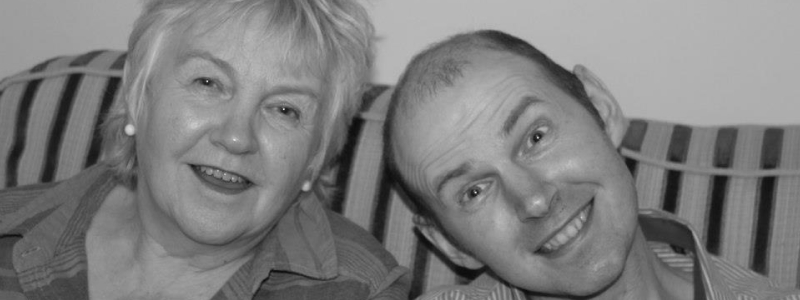
That’s how Convo was born. A digital product that helps people with MND continue conversations, with their own voice. It addresses the core problems of voice loss by offering tools like text-to-speech, voice banking, and message banking, all in one platform. The app helps bridge the communication gap between those living with MND and their loved ones.
In short, Convo aims to change the narrative that everyone living with MND will lose their voice - to giving people the tools they need to keep their voice.
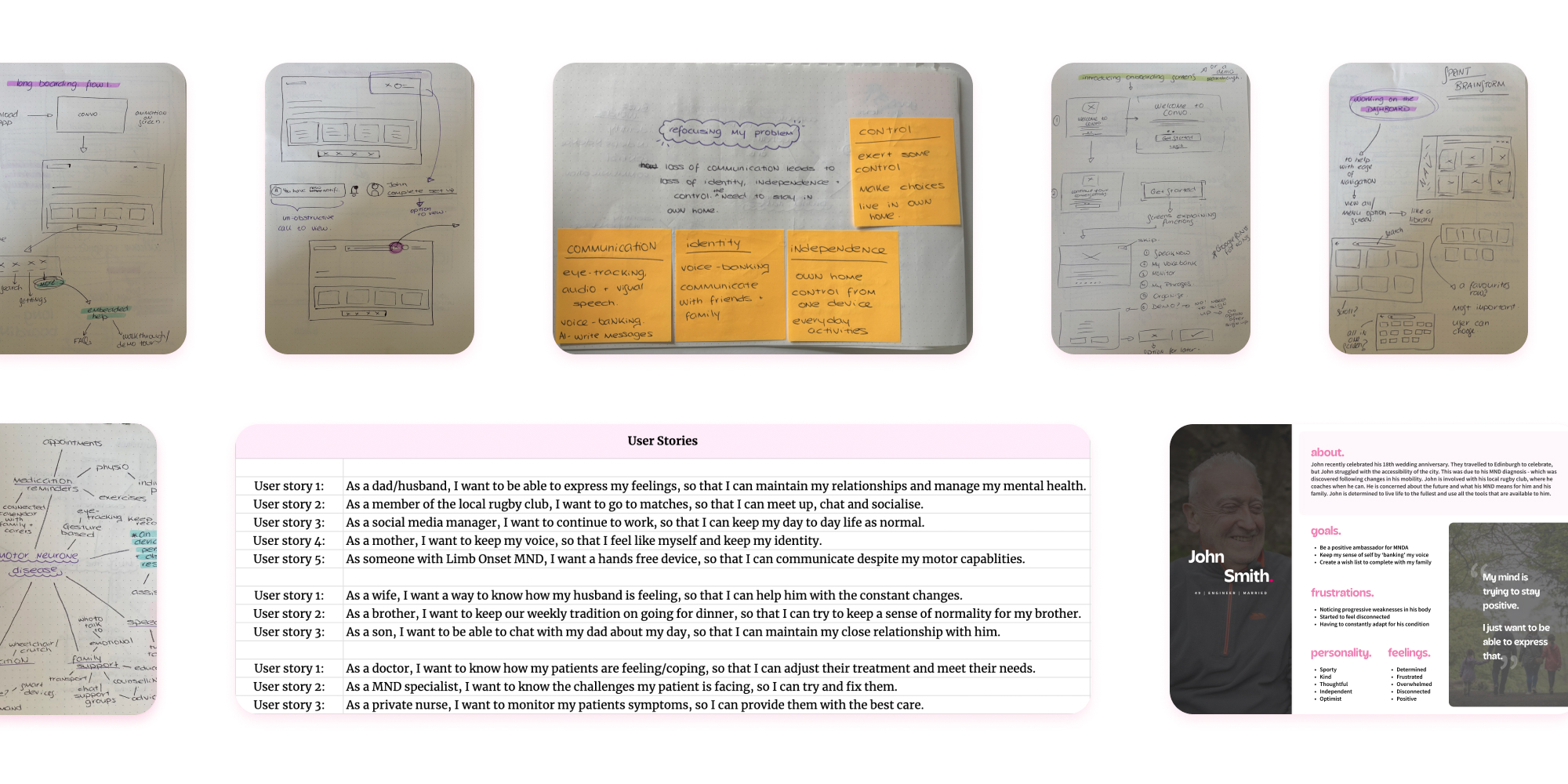
To begin, identifying the problem was crucial. MND presents many challenges, so I focused on a small intervention with significant impact, and this was how MND takes away a person’s voice. I discovered this through weeks of research including articles, websites, interviews, documentaries, and case studies.User research played a vital role in developing Convo. I conducted surveys, interviews, and card sorting sessions. This informed my user personas, empathy maps, user stories, and customer journey maps, which were to make sure I was meeting the users needs at every point of their journey with Convo.
I gathered multiple sketchbooks during Convo’s development, which became the foundation of the project. They documented the journey from initial ideas to final product, including problem solving, ideation, and planning. Sketched wireframes and user flows took up the most pages, but every development aspect, including branding, research and design sprints were documented.
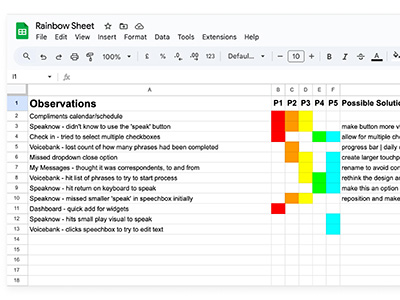
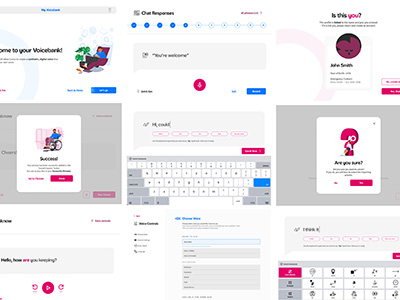
Translating these sketches into Figma was when Convo began to come to life. I started with mid-fidelity wireframes, developing them into high-fidelity designs once the brand and design system were established. The design system was essential for maintaining visual and brand consistency across the app.
I conducted three rounds of user testing, making adjustments to ensure high usability. A key goal was accessibility across a broad age range. This testing moved me towards a clean, simplified UI, ensuring Convo could be used by anyone, no matter how tech-savvy they were.
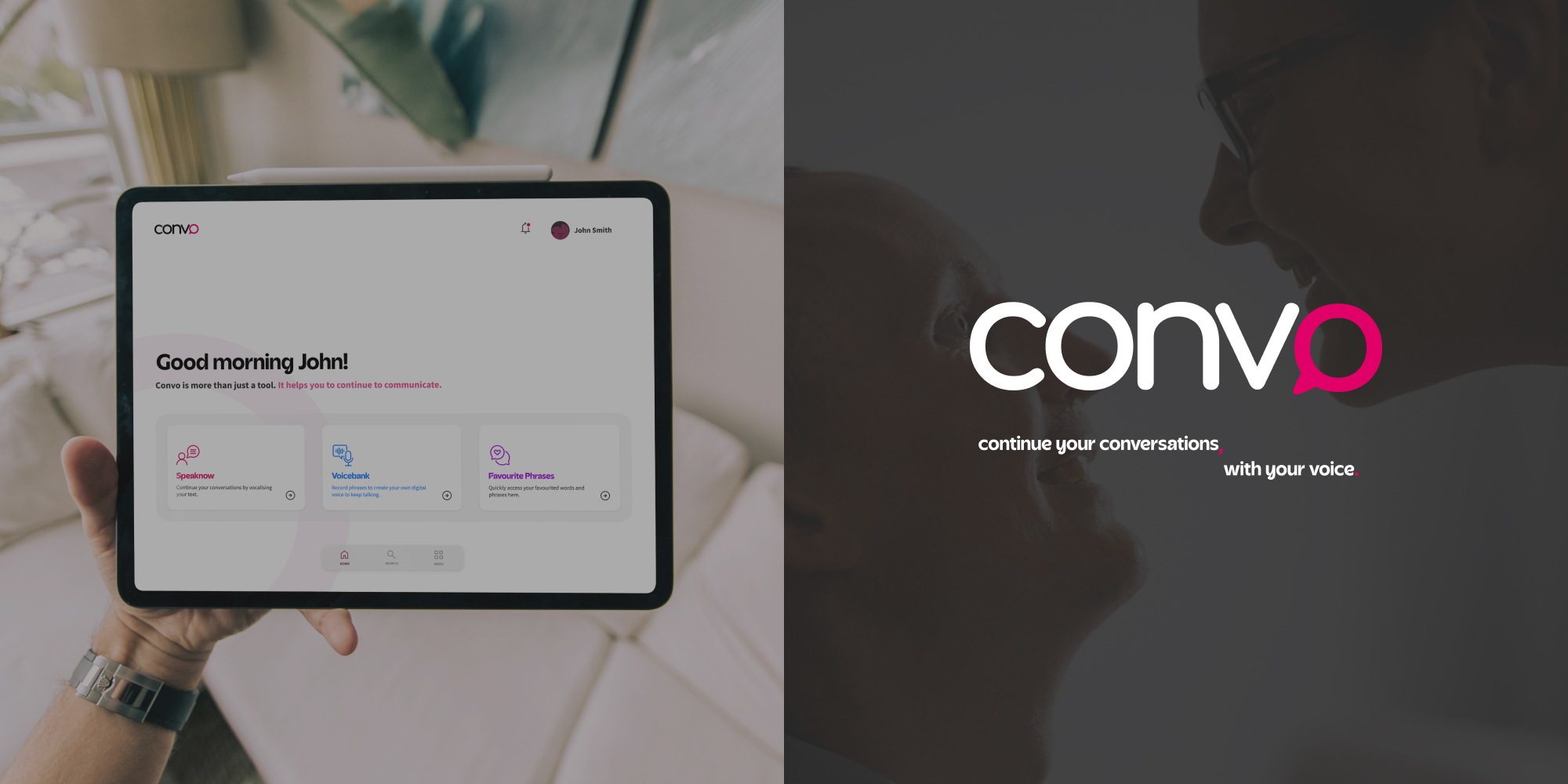
Convo. The tool to help everyone keep their voice.
An iPad or tablet application that allows people living with MND to ‘bank’ their voice and messages, so they can continue to communicate with their own voice. With text to speech features, including word keyboards, people no longer have to sacrifice communication and connections. It gives people back some control, as well as preserving their sense of identity. Convo may seem like a simple app, but the power it can give its users is immense. While this project was focused on those living with MND, Convo has the ability to be the tool for anyone living with a progressive neurological condition to keep their voice.
From a personal standpoint, I am very proud of Convo. I challenged myself with multiple aspects of this project, from the large scale prototype to carrying out different forms of user research. This made it even more rewarding to see how those challenging aspects and the rest of my project development, created a solution for the problem I chose. Convo is a project that holds a personal connection to me, which drove me to stay motivated throughout the year and create the best possible outcome I could. I believe it is a product that could really make a difference to people’s lives.
